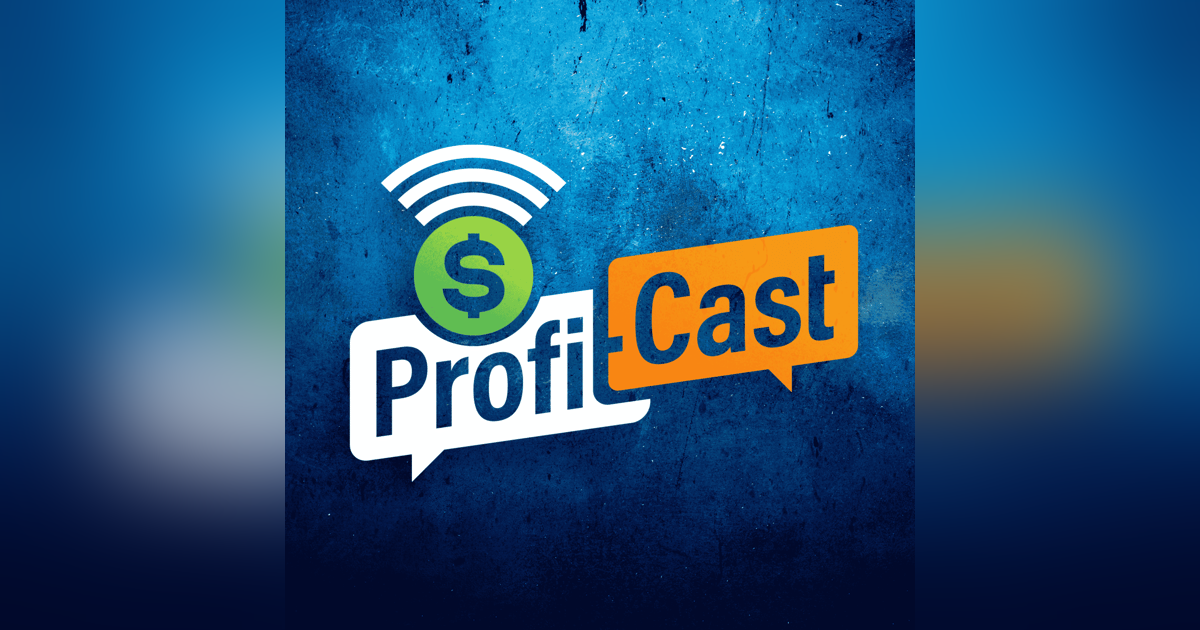53: The Last Episode of Profitcast!


Frankly, my (Emilee) speaking to anything on the name of this episode would be a spoiler alert! Yet, on that point, it is interesting to contemplate the end of something and gauge our reaction to that contemplation. From an introspective manner, does...
Frankly, my (Emilee) speaking to anything on the name of this episode would be a spoiler alert! Yet, on that point, it is interesting to contemplate the end of something and gauge our reaction to that contemplation. From an introspective manner, does the end make me feel relief or sadness? At the end of a long project, for example, I might feel relief; but at the end of an enjoyable vacation, I feel sadness. From an objective standpoint, when considering the end of something I enjoy, but am not directly part of, am I bummed out or do I feel indifference? For example, I was extremely bummed out by the end of Fringe, but I didn’t have a strong opinion over the cancellation of Revolution.
From August 2013 to September 2014, I was part of a podcast which rewatched the TV series Lost in anticipation for the fan-run reunion on Oahu. My role in this podcast was to read a book every week that was relevant to the episodes we were watching (or as close as I could get). This was a strenuous, sometimes stressful, but a hugely rewarding undertaking. The difference between this podcast and pretty much every other podcast I’ve been part of is that it had a finite number of episodes. We knew how many we would produce and how long it would take us. At the end of those, what, 63 weeks? At the end I was relieved (that was a lot of reading). But I was also bummed! What a fun experience, particularly insofar that our last episode of that podcast was recorded in Waikiki within sight of the beautiful ocean on the very island in which the majority of the show was filmed.
Our reaction to the end of the podcast, and our listeners’ reaction to the end of the podcast, is very telling in terms of judging the relative success of that podcast’s run. Did we do it right? Did I bore listeners with my 10-12 minute literature segment? Did we waste our time? Did our format work for what we were trying to accomplish?
For many podcasts, the end doesn’t come until the primary host(s) says it will. A morning show podcast, a political or current events podcast, a music podcast; these all have the potential to carry on for years and years, only ending because a host decides that the podcast has run its course. If and when that time comes for you, hopefully you’ve taken the time to do an inventory of your accomplishments, of your trials, and of your limitations in order to understand the reason you’ve decided to shut down.
But another interesting angle might surface from doing this inventory. Perhaps, while legitimately considering whether or not to shut down your podcast you realize that you’ve been making some grievous errors that aren’t only possible to rectify, but imperative! Brian shares some interesting insights as to how this came about in his course of determining whether this should be the end of Profitcast and explains why he made the decision he made.
It’s comforting, in my mind, to have someone like Brian out there in the world taking these kinds of risks and not being afraid to jump in with both feet. Personally, I’m not much of a risk taker. I like security, with the occasional burst of spontaneity, but I could never do what Brian does. What I appreciate so much about his frankness in this episode is his willingness to see that in spite of the knowledge he’s acquired over the last couple years, there are still basic, core mistakes we make as human beings that affect our ability to be successful, whether it is in podcasting or in daily life.
There are some big take-aways in this episode that should make us all scratch our head and do an inventory of our current ventures, whether or not we’re considering a full shut down of a project. Sometimes a recalibration is what we need to adjust our course and assure ourselves that we are living life to its fullest. But perhaps the most important component to this is the willingness to be honest with ourselves in regard to the reality of our circumstance.
Let The Cat Out Of The Bag
One of Brian’s first questions is where the heck did this idiom come from? Interestingly enough, one might even consider it ironic, there is no great origin story for this idiom. There are a couple of possibilities floating around, but the earliest recorded usage of the phrase comes from a book review in The London Magazine in 1760, in which the reviewer makes a comment about wishing the author had not “let the cat out of the bag.” Perhaps the reviewer liked to hide his cats in a bag before revealing them to party guests. Whatever the case may be, the origin of this idiom appears to be like a cat still in its bag.
PATREON
Would you please consider supporting Profitcast through Patreon? I would be ETERNALLY grateful! Thank you to ALL who have come alongside Profitcast through Profitcast Patreon
The foundation of Profitcast has been to pioneer techniques of turning passion into profit. Many podcasters have been successful with Patreon, and Brian hopes to provide meaningful insights and suggestions on how to launch your own campaign.
Links!























